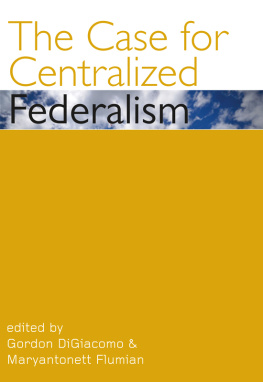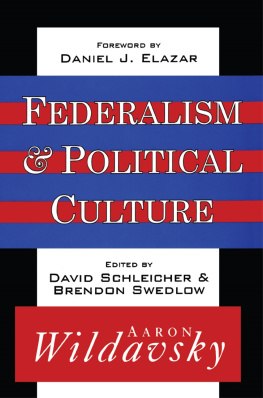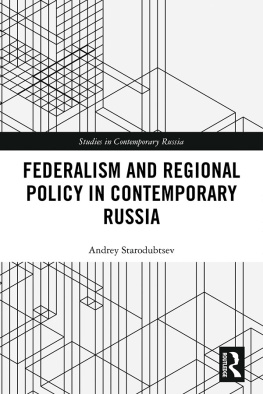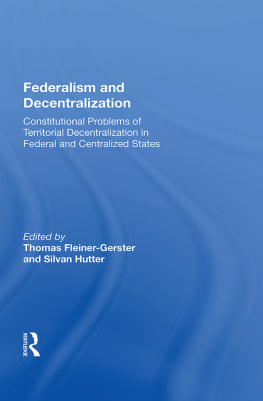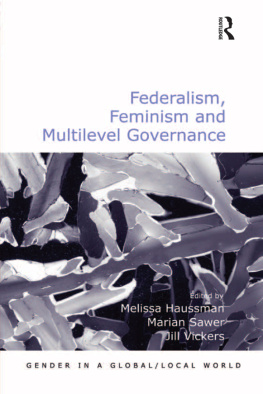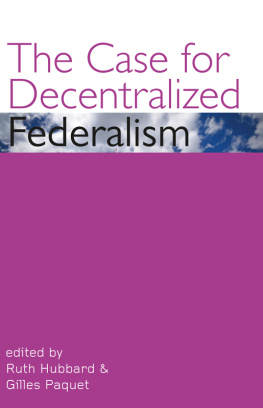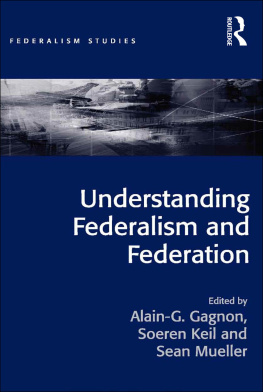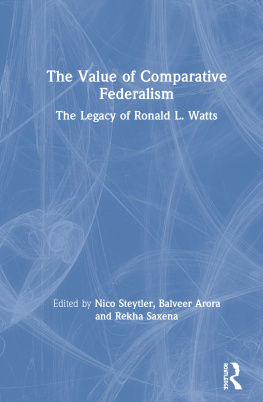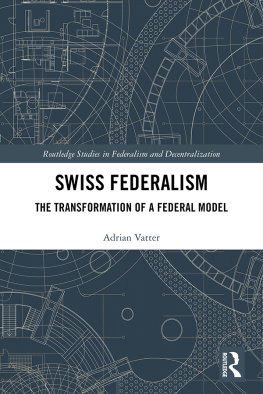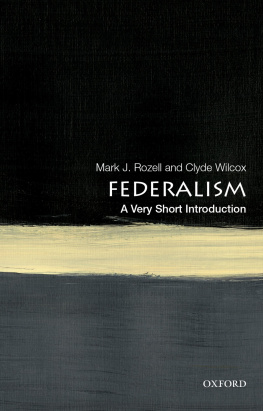Governance Series
Governance is the process of effective coordination whereby an organization or a system guides itself when resources, power and information are widely distributed. Studying governance means probing the pattern of rights and obligations that underpins organizations and social systems, understanding how they coordinate their parallel activities and maintain their coherence, exploring the sources of dysfunction, and suggesting ways to redesign organizations whose governance is in need of repair.
The series welcomes a range of contributionsfrom conceptual and theoretical reflections, ethnographic and case studies, and proceedings of conferences and symposia, to works of a very practical naturethat deal with problems or issues on the governance front. The series publishes works both in French and in English.
The Governance Series is part of the publications division of the Centre on Governance and of the Graduate School of Public and International Affairs at the University of Ottawa. This is the 26th volume published in the series. The Centre on Governance and the Graduate School of Public and International Affairs also publish a quarterly electronic journal, www.optimumonline.ca.
Editorial Committee
Caroline Andrew
Linda Cardinal
Monica Gattinger
Luc Juillet
Daniel Lane
Gilles Paquet (Director)
The published titles in the series are listed at the end of this book.
The Case for
Centralized
Federalism
edited by
Gord DiGiacomo &
Maryantonett Flumian
UNIVERSITY OF OTTAWA PRESS
OTTAWA
Contributors
Behiels, Michael D.
Michael Behiels is Professor in the Department of History at the University of Ottawa.
Collier, Cheryl N.
Cheryl Collier is Assistant Professor in the Department of Political Science, University of Windsor.
DiGiacomo, Gordon
Gordon DiGiacomo is a public policy research consultant and a Sessional Lecturer in Political Science with Carleton University and the University of Ottawa.
Flumian, Maryantonett
Maryantonett Flumian is President of the Institute on Governance, Ottawa, Ontario.
Jeffrey, Brooke
Brooke Jeffrey is associated with the Department of Political Science, Concordia University.
Weibust, Inger
Inger Weibust is Assistant Professor at the Norman Paterson School of International Affairs, Carleton University.
Foreword
This volume is one of a pair of books published in its Governance Series by the University of Ottawa Press that have been the outcome of the Federalism Redux Project that was undertaken in 2008. These two books are designed to provide the requisite vocabulary and schemes of arguments likely to be useful for those who would like to articulate the best case that can be made for centralized and decentralized federalism respectively.
This particular volume makes the case for centralization while the companion volume, edited by Ruth Hubbard and Gilles Paquet, makes the case for decentralization.
The Federalism Redux Project is aimed at presenting the best case for each position in the most analytically sound way. It is for the reader to determine whether the books have delivered on their promises, and whether, as a result, someone who has worked carefully through both books is likely to be persuaded more effectively by one or the other.
Our main objective is to enrich the debate about federalism in Canada. Our intent is to get away from the continuous whining about petty grievances or the doldrums of institutional plumbing, and to stimulate a serious discussion about the best way to initiate an important and useful conversation on federalism in Canada, and on how it might best serve Canada going forward. We invite readers to communicate with authors and editors in order to make their views and criticisms known.
It is the intention of the Editor in Chief of Optimumonline at www.optimumonline.ca to provide a forum for a broad range of views on these books in forthcoming issues.
We would like to thank the Centre on Governance at the University of Ottawa and the Institute on Governance; their various forms of support for the Federalism Redux Project are gratefully acknowledged.
Gordon DiGiacomo and Maryantonett Flumian
Ruth Hubbard and Gilles Paquet
Introduction
Gordon DiGiacomo and Maryantonett Flumian
In the 2008 federal election, the Conservative party won 21.7 percent of the popular vote in Quebec, which gave it 10 seats. In the previous election, in 2006, the party also won 10 seats but its popular vote total in the province was 24.6 percent (Elections Canada 2009). What is interesting about these figures is that between 2006 and 2008 the Conservative party declared the Quebecois to be a nation, gave the government of the province a seat at UNESCO (United Nations Educational, Scientific and Cultural Organization), responded to Quebecs concerns about the so-called fiscal imbalance, and generally articulated a highly provincialist vision of Canadian federalism. Apparently, the voters in the province were not impressed.
Going back a little further, the Liberal party won 21 seats and 33.9 percent of the vote in Quebec in the 2004 federal election, down from 36 seats and 44.2 percent of the vote in the 2000 election (Elections Canada 2009). The reason for the drastic decline in the fortunes of the Liberal party in Quebec, of course, was the sponsorship scandal. In an effort to stem the partys hemorrhaging, shortly before the 2004 election, then Prime Minister Paul Martin agreed to devolve responsibility for parental benefits to the government of the provinceeven before the Supreme Court handed down its decision on the constitutionality of the federal parental benefits initiative. Not surprisingly, the devolution move was not able to dissipate the stench of corruption that hung over the Liberal party.
What the above electoral comparisons contain is the germ of a proposition. Maybe, just maybe, the citizens of the Province of Quebec have become more interested in clean, progressive government than in seeing the provincial political elite acquire more power from the federal government. If this is the case, then the traditional tactic of federal parties trying to win votes in Quebec by diminishing the role of Ottawa in the province has run its course. It is a possibility devoutly to be wished not only in the case of Quebec but of all provinces.
Over the past several years, Ottawa has demonstrated an extraordinary degree of subservience to the provinces, repeatedly backing off from playing a leadership role on several issues, even when the issue falls squarely within its jurisdiction. In general, the six readings in this book condemn this jurisdictional timidity and call for a new federal assertiveness. The arguments presented in the readings make a convincing case that the absence of federal policy leadership has led to abysmal national performance. As a result, to paraphrase Theda Skocpol, it is time to bring Ottawa back in.
The federal governments diminished status has prompted one veteran political scientist to conclude that there is no government of Canada! Richard Simeon has written:
It is important to get away from the rhetoric that says, We are the government of Canada. The federal government is one government, with specific responsibilities, in a system of multi-level governance. Government in Canada is the combined actions, individually and collectively, of federal, provincial, and increasingly municipal and aboriginal governments. We do not have the hierarchy implied by levels of government; we have equal orders of government (Simeon et al. 2006: 3).1

